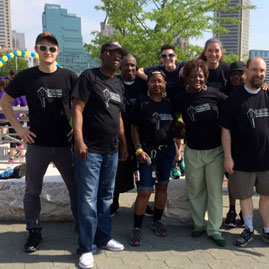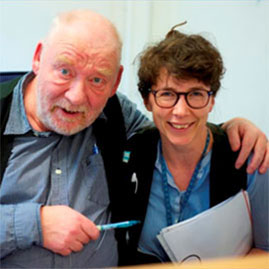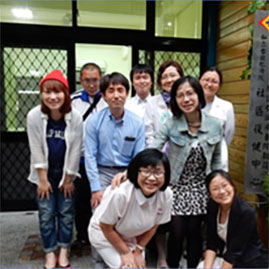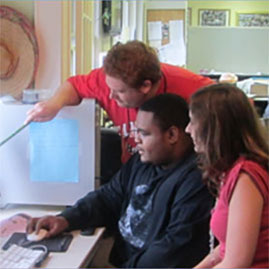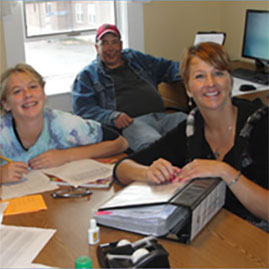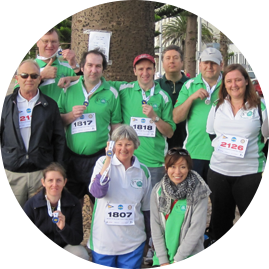A Clubhouse is a membership organization, and the people who come and participate in a Clubhouse are its members. Membership in a Clubhouse is open to anyone who has a history of mental illness. This idea of membership is fundamental to the Clubhouse concept: being a member of an organization means that an individual has both shared ownership and shared responsibility for the success of that organization.
To be a member of an organization means to belong, to fit in somewhere, and to have a place where one is always welcome. For a person living with mental illness, these simple things cannot be taken for granted. In fact, the reality for most people who live with mental illness is that they have a constant sense of not fitting in, of isolation and rejection. Mental illness often has the devastating effect of separating people from others in society.
“Mental patient,” “client,” “disabled,” “consumer” and “user” are all terms used by society as a reference to people living with mental illness. People living with mental illness are often segregated according to these label and defined by them as people who need something, or as people who are societal burdens that need to be managed.
The Clubhouse offers a complete change in this perspective. It is designed to be a place where a person living with mental illness is not treated as a patient and is not defined by a disability label. In a Clubhouse, a person with mental illness is seen as a valued participant, a colleague and as someone who has something to contribute to the rest of the group. Each person is a critical part of a community engaged in important work.
In a Clubhouse, each member is given the message that he or she is welcome, wanted, needed and expected each day. The message that each member’s involvement is an important contribution to the community is a message that is communicated throughout the Clubhouse day. Staff and other members greet each person at the door of the Clubhouse each morning with a smile and words of welcome.
The daily work of the Clubhouse community is organized and carried out in a way that continually reinforces this message of belonging. This is not difficult, because in fact the work of the Clubhouse does require the participation of the members. The design of a Clubhouse engages members in every aspect of its operation, and there is always much more work to be done than can be accomplished by the few employed staff. The skills, talents, and creative ideas and efforts of each member are needed and encouraged each day. Participation is voluntary, but each member is always invited to participate in work which includes clerical duties, reception, food service, transportation management, outreach, maintenance, research, managing the employment and education programs, financial services and much more.
Membership in a Clubhouse gives a person living with mental illness the opportunity to share in creating successes for the community. At the same time, he or she is getting the necessary help and support to achieve individual success and satisfaction.


